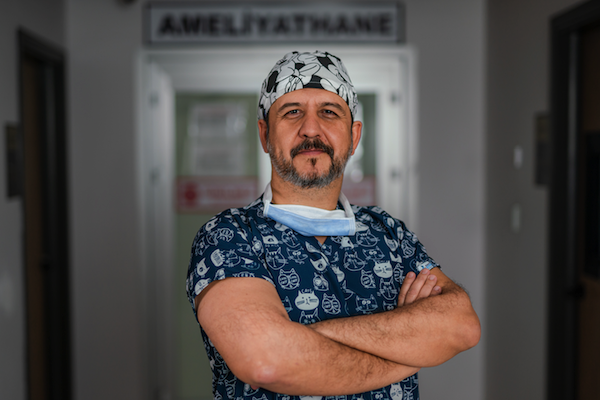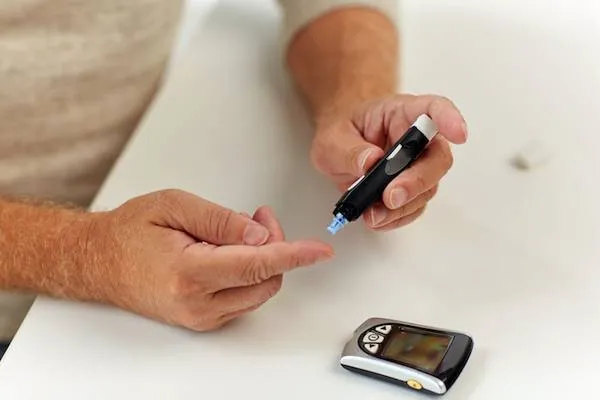Bid Farewell to Type 2 Diabetes for Life
Expert in "Metabolic Surgery," Prof. Dr. Alper Çelik, provides services in obesity and diabetes surgery at Özel Etiler Hospital in Istanbul Mecidiyeköy, serving 35 different countries. Prof. Dr. Alper Çelik performs successful operations known as "sugar" and "diabetes surgery," which are also used to treat diseases such as type 2 diabetes, hypertension, obesity, and high cholesterol.
Prof. Dr. Alper Çelik is recognized today as an expert in metabolic surgery, not only in Turkey but also globally. Metabolic surgery, also known as "sugar" or "diabetes surgery," is based on using surgical methods to treat metabolic diseases, including type 2 diabetes, as well as other conditions like hypertension, obesity, and high cholesterol. Left untreated, these metabolic syndrome diseases can significantly impact a person's quality of life and can even become life-threatening.
Prof. Dr. Alper Çelik has received various training in metabolic surgery abroad and has made significant contributions to Turkey in this field. In September 2011, he established the Metabolic Surgery Unit at Universal Taksim Alman Hospital and went on to establish the Metabolic Surgery Academy, Metabolic Surgery Society, Istanbul Metabolic Surgery Clinic, and the Turkish Metabolic Surgery Foundation in subsequent years. Alper Çelik, who created the National Obesity Database in 2015, was awarded the title of Professor in 2016. Prof. Dr. Alper Çelik continues to provide services in obesity and diabetes, including metabolic surgery, at Özel Etiler Hospital in Istanbul Mecidiyeköy, serving 35 different countries.
High Success Rate in Metabolic Surgery
Prof. Dr. Alper Çelik emphasizes that the success rate in metabolic surgery has been very high in recent years due to advanced methods:
"Before deciding on the application of metabolic surgery, we conduct a detailed examination of the patient's values. The patient's body mass index must be over 30, and despite treatments, blood sugar control cannot be achieved, or the body mass index must be over 40. Additionally, we should check how long the patient has had diabetes, whether insulin is being used, and the hemoglobin A1c level. One of the most important criteria for the surgery is that the patient's pancreas continues to produce insulin."

"Early Diagnosis Favors"
Prof. Dr. Alper Çelik says, "Especially in patients where the diagnosis is made early and who do not require insulin treatment and take low doses of medication, there is a greater chance of a successful operation. In metabolic surgery, the patient is not cut open; the laparoscopic method, known as minimally invasive surgery, is used. Depending on the method applied, the operation can take 1-3 hours. The patient can stay in the hospital for 4 or 5 days after the operation, depending on the type of surgery. The methods used in metabolic surgery include Sleeve Gastrectomy, Minigastrik By-pass, Duodenal Switch, and more. The choice of method is determined based on the suitability of the patient and their condition. The primary goal of metabolic surgery is to delay the meeting of food with gall and pancreatic fluids in the body. This way, substances that stimulate the pancreas to produce insulin are released, and insulin secretion automatically increases."
Prof. Dr. Alper Çelik also notes that metabolic surgery carries risks like any surgical procedure but emphasizes: "It should not be forgotten that the risk of the surgical procedure is much lower compared to the risks of the operation and treatable diseases. The most important point in the operation is the correct evaluation of the patient and the operation being conducted by an experienced surgeon. Proper completion of the entire process from patient evaluation to post-operative follow-up will provide maximum benefit to the patient."
Prof. Dr. Alper Çelik offers recommendations to patients suffering from diabetes, emphasizing that diabetes, although it can last a lifetime, can be managed with early diagnosis, healthy lifestyle choices, and effective treatment approaches. During the effective management of diabetes, regular exercise and balanced nutrition are important.
About Prof. Dr. Alper Çelik
Prof. Dr. Alper Çelik was born on February 26, 1975, in Aksaray, Turkey, and completed his primary school years at İskenderun Namık Kemal Primary School and his secondary school and high school education at İskenderun İstiklal Makzume Anatolian High School. In 1993, he started his medical education at Ankara University Faculty of Medicine and completed his specialization in general surgery at Ankara Oncology Training and Research Hospital in 2004. Alper Çelik first served as an assistant professor and then as an associate professor at Gaziosmanpaşa University in Tokat. He also spent time abroad for research and education purposes, including Japan, Brazil, and India. In 2011, he established the Metabolic Surgery Unit at Universal Taksim Alman Hospital and went on to establish several organizations and institutions related to metabolic surgery in the following years. Prof. Dr. Alper Çelik was awarded the title of Professor in 2016 and continues to provide his services in the field of obesity and diabetes, including metabolic surgery, to 35 different countries at Özel Etiler Hospital in Istanbul Mecidiyeköy.
British News Agency















